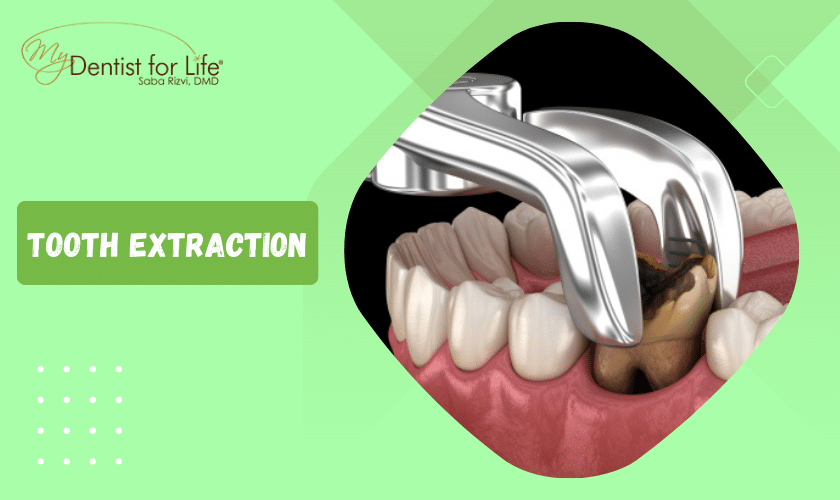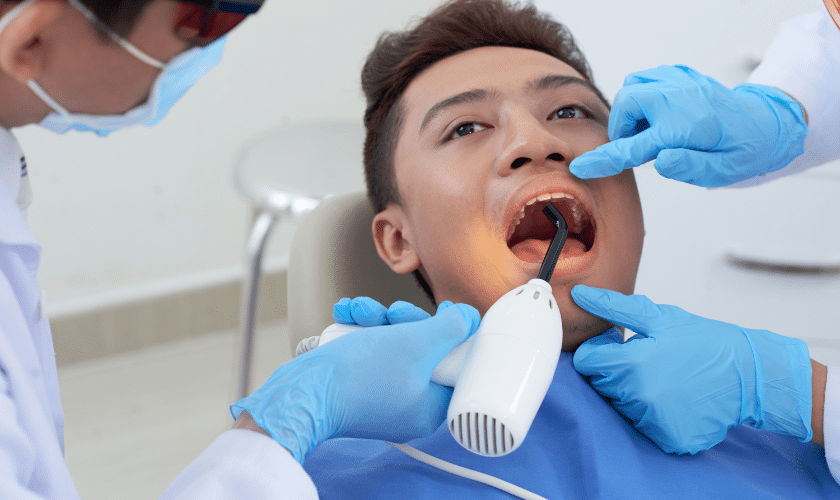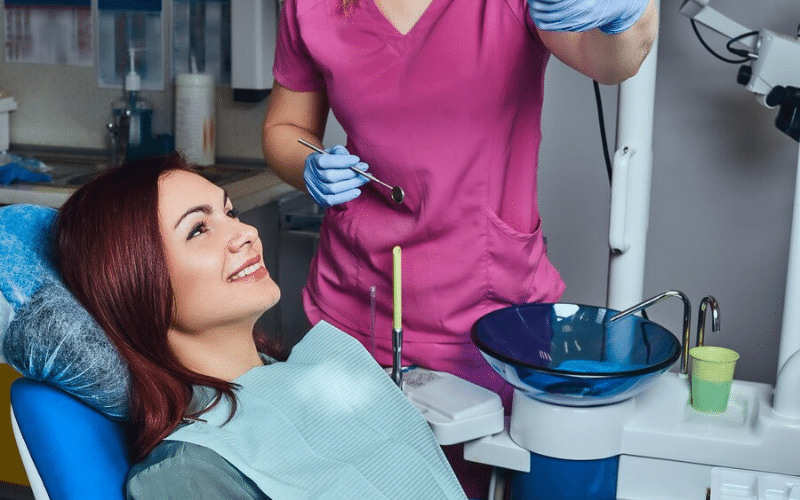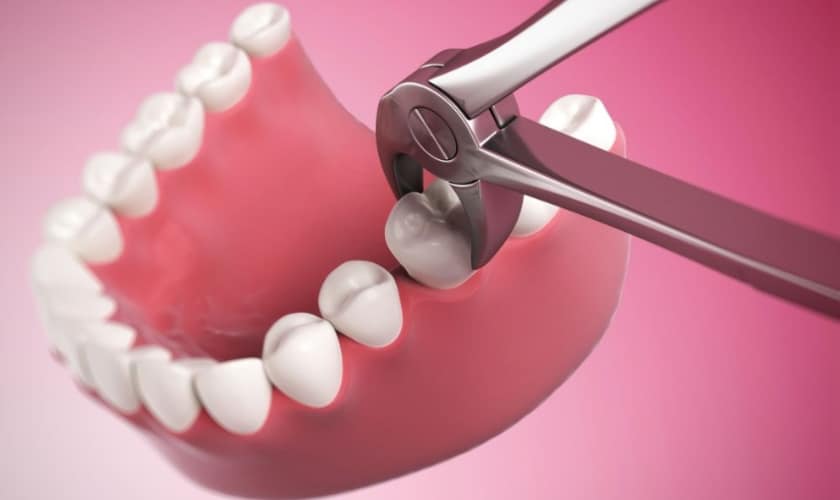ONLINE SCHEDULING AND VIRTUAL CONSULTS AVAILABLE

Tooth Extraction: When Is It Necessary

Are you experiencing tooth pain or discomfort? A tooth extraction may be the solution to your problems. However, it can be intimidating and nerve-wracking to consider having a tooth removed. In this blog post, we’ll go over when it’s necessary to get a tooth extracted and what factors should be taken into account before making such an important decision. We’ll also provide tips on how to prepare for the procedure and care for your mouth afterward. So sit back, relax, and let us guide you through everything you need to know about getting a tooth extracted!
What Factors Should Be Considered When Choosing To Have A Tooth Extracted?
When considering whether to have a tooth extracted, several factors should be taken into account. Firstly, the extent of damage to the tooth will play a major role in determining whether extraction is necessary. If decay or trauma has caused irreversible damage, then extraction may be the only option.
Additionally, if overcrowding or misalignment is causing issues with other teeth or affecting bite alignment, removal of one or more teeth may be recommended by your dentist. Periodontal disease can also lead to tooth loss and may require extraction for proper treatment.
Another factor to consider is overall oral health and hygiene practices. In some cases, extracting a problematic tooth can prevent the further spread of infection or disease in the mouth.
It’s important to discuss all options with your dentist before making any decisions about extraction. They will be able to guide alternatives such as root canal therapy or other restorative procedures.
Ultimately, each case is unique and requires careful consideration based on individual circumstances. By weighing all factors carefully and consulting with your dental professional, you can make an informed decision about whether extraction is right for you.
When Is It Necessary To Have A Tooth Extracted?
There are several cases where a tooth extraction treatment becomes necessary. One of the most common reasons is when a tooth has become severely damaged or decayed beyond repair. In such situations, extracting the tooth can prevent further spread of infection and damage to surrounding teeth.
Another reason for extraction is overcrowding in the mouth which can cause misalignment issues. Extraction may be required before orthodontic treatment to create space in the mouth for proper alignment.
Impacted wisdom teeth also require removal as they may cause pain, swelling, and even infections if left untreated. When these teeth emerge improperly or do not have enough room to grow properly they must be extracted.
In some cases, extractions are performed as part of cancer treatment that requires radiation therapy or chemotherapy since weakened immune systems cannot fight off infections easily.
Tooth extraction is considered a last resort after all other options like fillings and root canal treatments fail but it’s crucial to consult your dentist on whether an extraction is necessary for your dental health condition.
How Do I Prepare For A Tooth Extraction?
Preparing for tooth extraction is an essential step to ensure that the procedure goes as smoothly as possible. Here are some tips on how to get ready for this dental treatment:
1. Talk to your dentist: Before the extraction, discuss any concerns or questions you may have with your dentist. They will guide you through the process and provide instructions on what to do before and after.
2. Follow pre-operative instructions: Your dentist will give you specific guidelines to follow in the days leading up to your extraction, such as avoiding certain foods and medications.
3. Arrange transportation: You won’t be able to drive yourself home after anesthesia, so make sure someone is available to take you home safely.
4. Wear comfortable clothing: Choose loose-fitting clothes that allow easy movement of your arms, especially if general anesthesia will be used during surgery.
5. Rest beforehand: Get plenty of rest before the day of surgery so that your body can handle it better and recover faster afterward.
By taking these steps in advance, you’ll increase the chances of having a successful tooth extraction experience with minimal discomfort or complications!
After The Extraction, What Should I Do?
After having a tooth extracted, there are several things you can do to ensure proper healing and minimize discomfort. Here are some aftercare tips:
Rest: It’s important to take it easy for the first few hours after the procedure. Avoid engaging in any strenuous activity or exercise, as this can increase bleeding.
Apply Ice: Applying an ice pack to your cheek can help reduce gum swelling and discomfort. Use it for 20 minutes at a time with 10-minute breaks in between.
Avoid Hard Foods: For the first day or two after extraction, stick to soft foods like soup, yogurt, and mashed potatoes. Avoid hot and spicy foods that may irritate the area.
Rinse Gently: After 24 hours have passed since your extraction, rinse your mouth gently with warm salt water (1/2 teaspoon of salt dissolved in a cup of warm water) three times per day.
Take Pain Medication: If you experience pain following the extraction procedure, over-the-counter pain medication such as ibuprofen or Tylenol may be helpful. Follow dosing instructions carefully and never exceed recommended doses.
Follow-Up With Your Dentist: Make sure to attend all follow-up appointments scheduled by your dentist so they can monitor your healing progress and address any concerns you have during recovery.
By following these simple steps, you’ll be on track to heal quickly from an extraction procedure.
Tooth extraction is not a decision that should be taken lightly. However, there are certain instances where it is necessary to have a tooth removed. Factors such as severe decay or damage, overcrowding in the mouth, infection, or gum disease are some of the reasons why you might need to have a tooth extracted.
It’s important to remember that everyone’s dental situation is unique and what may work for one person may not necessarily work for another. Therefore, always consult with your dentist before making any decisions about having a tooth removed.
If you do decide to go through with an extraction, make sure to follow your dentist’s instructions carefully on how best to prepare for the procedure. Afterward, take good care of yourself and allow time for proper healing.
By following these guidelines and taking care of your oral health in general – brushing regularly, flossing daily, and scheduling regular check-ups with your dentist – you can keep your teeth healthy and avoid needing extractions in the future.




